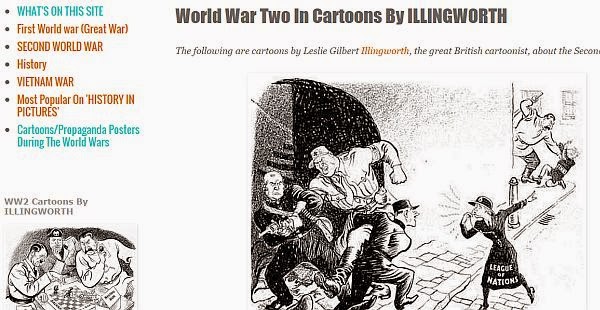 The British soldiers were all tense. They were in a landing vessel and within minutes they would disembark at Omaha beach on the French coast. It was D-Day in 1944. The captain had told them that chances were half of them would be killed in the hail of German bullets. They noticed a man casually puffing at a cheroot. On his shoulder was not a gun, but a camera.
The British soldiers were all tense. They were in a landing vessel and within minutes they would disembark at Omaha beach on the French coast. It was D-Day in 1944. The captain had told them that chances were half of them would be killed in the hail of German bullets. They noticed a man casually puffing at a cheroot. On his shoulder was not a gun, but a camera.The man was Life magazine's ace war photographer Robert Capa.
Capa was born Andre Friedman in Austria. He was a Jew. At the rise of Hitler, he moved first to Britain then to America. There he adopted the name Robert Capa.
He was the playboy around town, carefree and naughty.
To try his hand at war photography he went to Spain in 1936 to cover the Spanish Civil War.
There he met the beautiful lens woman Gerda Taro. Gerda's attitude of going to any length to cover the ongoing war attracted Capa towards her. She used to say that to get a good picture it is necessary to go close to the object. She died when she stepped on a landmine.
Capa's brief liaison with Gerda and her gruesome death changed him for ever. He never married. War photography became his passion and his suicidal motto was, "If your photographs aren't good enough, you're not close enough."
After the Spanish Civil war Capa got his chances during the Second World War.
He shot to fame by his coverage of D-day. He was injured with three bullet wounds.
The rolls he shot were flown to Britain but unfortunately due to a mistake of a lab technician, four of the rolls got spoiled. Only a few photographs of D-day could be saved.
But these were enough to make the people understand the horrors of war when they were published by Life magazine.
Capa became famous.
He was invited for an assignment to cover the war in Indo-China where the French were battling the Vietnamese. He toured widely with the French soldiers and got some great pictures. One day he got down from the jeep ( despite admonitions by the soldiers) and moved onwards to capture on film the advance of French troops. Ten minutes later there was an explosion. Capa had stepped on a landmine.
Capa died the way his beloved Gerda had died.
Below are some of the greatest works of Robert Capa
 BELGIUM. W.W.II. Ardennes. Battle of the Bulge. Near Bastogne. December 23rd-26th, 1944. An American soldier capturing a German soldier.
BELGIUM. W.W.II. Ardennes. Battle of the Bulge. Near Bastogne. December 23rd-26th, 1944. An American soldier capturing a German soldier. INDO-CHINA. On the road from Namdinh to Thaibinh. A French military convoy. May 25th, 1954.
INDO-CHINA. On the road from Namdinh to Thaibinh. A French military convoy. May 25th, 1954. Paris liberated: A French civilian who was unable to contain his wrath against a German soldier who had surrendered.
Paris liberated: A French civilian who was unable to contain his wrath against a German soldier who had surrendered. Omaha Beach. June 1944. French fishermen looking at the bodies of soldiers killed during the landing.
Omaha Beach. June 1944. French fishermen looking at the bodies of soldiers killed during the landing. Spanish Civil War: The Death of a Loyalist Militiaman, Cerro Muriano, Cordoba front, September 5, 1936.
Spanish Civil War: The Death of a Loyalist Militiaman, Cerro Muriano, Cordoba front, September 5, 1936. American soldiers deal with the treacherous conditions of Omaha Beach, Normandy, France, June 6, 1944.
American soldiers deal with the treacherous conditions of Omaha Beach, Normandy, France, June 6, 1944. An American soldier landing on Omaha Beach, D-day, June 1944.
An American soldier landing on Omaha Beach, D-day, June 1944. An American soldier killed by German snipers, Leipzig, Germany, April 18, 1945.
An American soldier killed by German snipers, Leipzig, Germany, April 18, 1945.Images
Time
Magnum















































